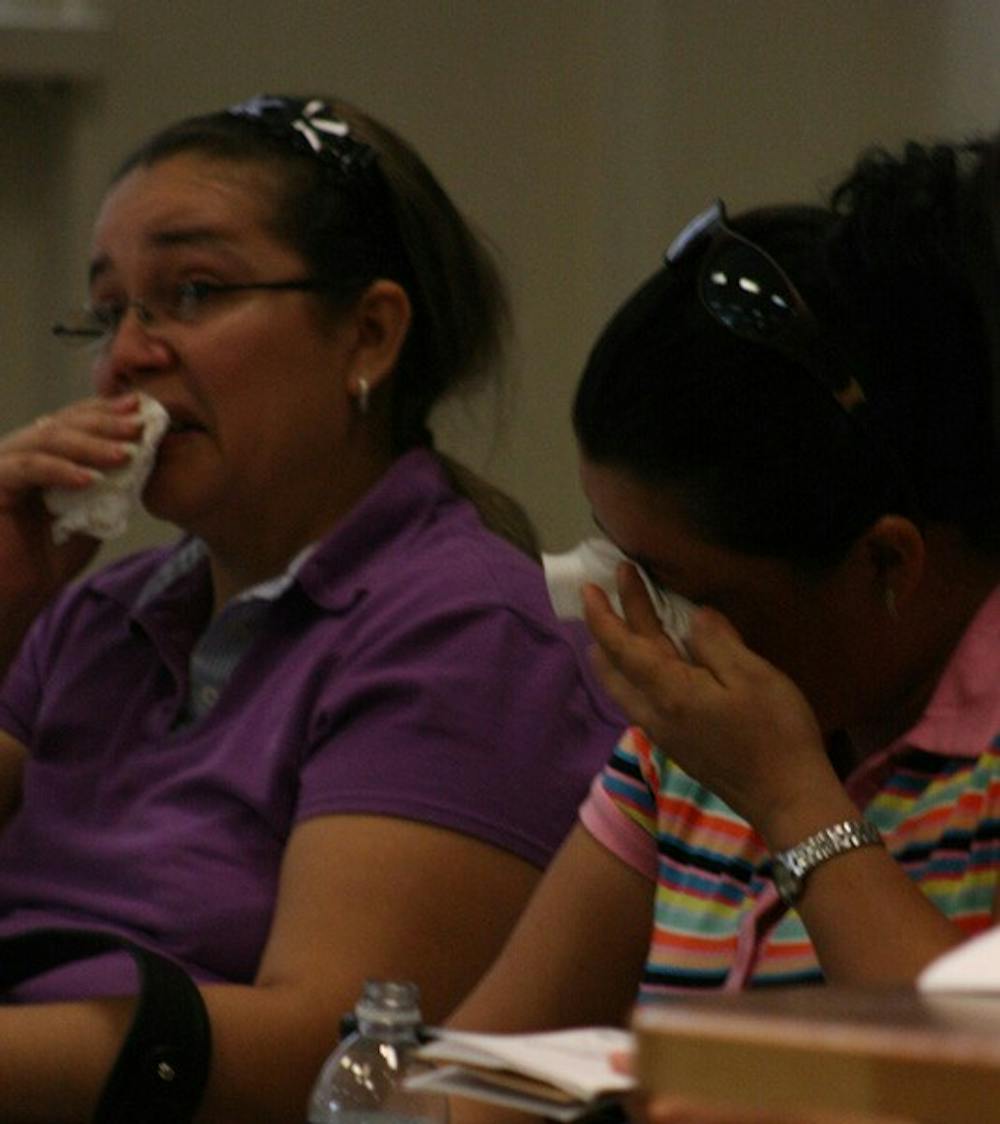For Gina Cano and Lowlee Urquia, a Nike shirt with a “Made in Honduras” tag reflects time spent in a sweatshop rather than national pride.
Cano and Urquia, both from Honduras, spoke at UNC on Monday night in an event sponsored by United Students Against Sweatshops to bring awareness to the needs of workers subjected to what they called grueling conditions in Nike-owned factories.
Cano is one of 1,200 workers who lost their jobs at a factory in Honduras that produced garments exclusively for Nike, where she said poor medical services were available for workers.
“In this factory, we experienced various workers’ rights violations,” she said. “We didn’t have access to medical care and were gripped out of very basic benefits as workers.”
UNC signed an eight-year, $28.34 million contract with Nike that took effect in July 2002. It was renewed in 2008 to last another 10 years, and requires Nike to abide by the University’s Code of Labor Conduct.
The University has come under scrutiny in the past for its contracts with Nike and Russell Athletic, companies that have been criticized for treatment of their workers.
A UNC committee is responsible for examining such complaints. Last year, the University decided not to renew its contract with Russell Athletic after concluding that the company was not complying with the labor code.
At Monday’s event, an interpreter translated the comments throughout the talk.
About 60 students attended the lecture.
Cano and Urquia said they presented information on their experiences to spread awareness about their plight. They urged outsiders to take up their cause to make a difference.
“We hope you’ll join us in this struggle — we think it’s very important,” Urquia said.
“We believe everyone in this room has the power to send Nike a clear message that they can’t get away with this.”
Urquia said she previously worked for Vision Tex, where she said employees encountered a difficult workplace environment.
“We went to work on a Monday morning at 7:30 a.m. only to find the factory had closed,” she said.
The workers created a union in response to the treatment to organize in favor of their rights and found some success in their efforts.
“Through further help, we were able to obtain 26.5 percent of the severance package we were entitled to,” Urquia said.
Rod Palmquist, a member of the United Students Against Sweatshops, spoke about his organization’s efforts to improve working conditions for individuals like Cano and Urquia.
“We should stick by factories that support workers’ rights,” he said.
Dida El-sourady, a senior international studies major, said she felt strongly about student involvement in the issue.
“Students have a lot of power to pressure companies to treat workers well,” she said.
Contact the University Editor at udesk@unc.edu.
Factory workers lament services
Talk about poor labor conditions

Factory workers became emotional as they discussed the poor conditions they worked at Nike. DTH/Duncan Culbreth


